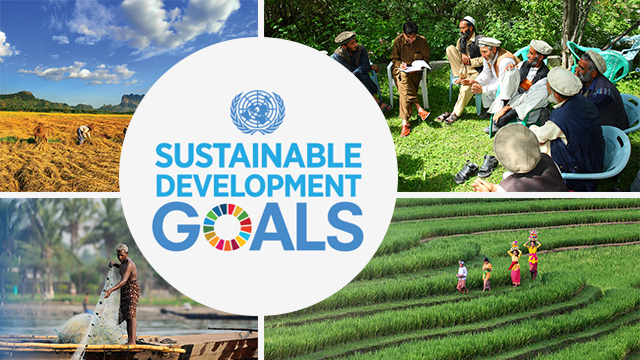“Breaking down the SDG’s – Contribution of TUEWAS and SNRD to implementing the Agenda 2030” Conference
GIZ professionals will gather in Bangkok from 31 May – 02 June 2016 to disseminate best practices and peer-learning as well as discuss ways and how to best implement the 2030 Agenda in Asia.
Following the adoption of the Sustainable Development Goals (SDGs) by United Nations member states, the first-ever gathering of two Sector Networks — Transport, Environment, Energy and Water in Asia (TUEWAS) and Sector Network Natural Resources and Rural Development in Asia (SNRD) — responds to the call for development institutions and organizations to come up with more audacious action plans and cross-cutting measures to end poverty, fight inequality and protect the environment.

Titled “Breaking down the SDG’s – Contribution of TUEWAS and SNRD to implementing the Agenda 2030”, the event reiterates GIZ’s commitment in the realization of the global agenda in pursuit of a sustainable future. With many years of experience in Asia, GIZ strives to move the agenda forward and address the root causes of decade long crises, conflicts and challenges that plague our world.
Over the course of the conference, participants will have a chance to engage in dialogues on technical priority areas linking them to the 2030 Agenda. Taking the lead on Tuesday 31 May is TUEWAS while SNRD Asia on Thursday 2 June. The highlights will be on the joint conference day, Wednesday 1 June, with a keynote speech by Dr. Shamshad Akhtar, Executive Secretary, Economic and Social Commission for Asia and the Pacific (ESCAP), United Nations, and a lecture on “A German Perspective on the SDGs” by a representative from Germany while later during the day, the approximately 250 attendants will participate in technical workshops, and learn more about the work of each Working Group through a gallery walk.
With the conclusion of the Millennium Development Goals (MDGs), the SDGs now comprise of 17 goals and 169 associated targets cross-cutting social, economic and environmental dimensions. Taking off from where its predecessor has succeeded and aborted, the newly adopted goals aim to deliver measurable solutions by urging nations and institutions alike to join hands in ushering in a new era by 2030.
In order to turn these visionary goals into reality, development workers must aim for long-term approach. In essence, maximizing resources at hand will also direct us in the right direction while strategic planning and political support will greatly contribute in this momentum.
For more details of the programme, please click here.
By Anusara Tanpitak, SNRD Asia

